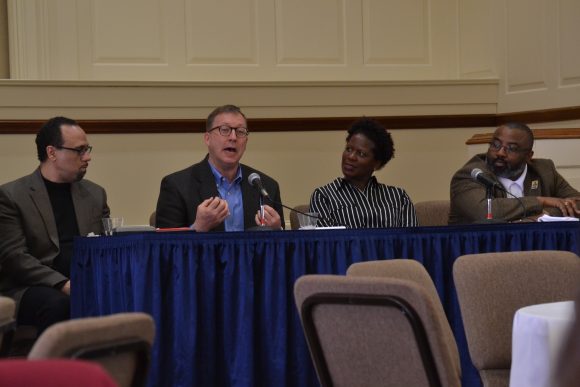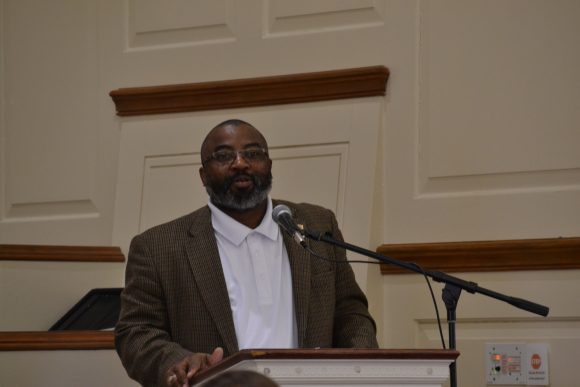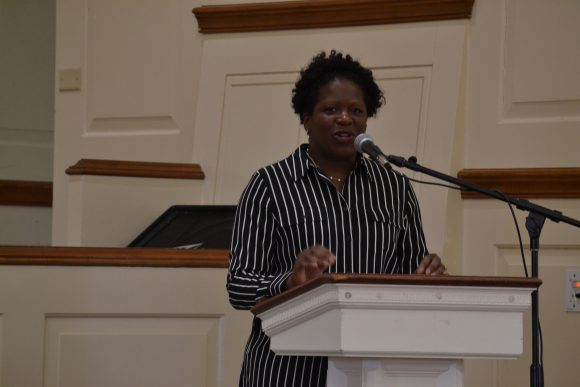Maddie Conley
Online Editor
“Like anybody, I would like to live a long life. Longevity has its place. But I’m not concerned about that now. I just want to do God’s will. And he’s allowed me to go up to the mountain. And I’ve looked over, and I’ve seen the promised land . . . So I’m happy tonight. I’m not worried about anything. I’m not fearing any man” (I’ve Been to the Mountaintop, 1968).
These were the final words Dr. Martin Luther King would share with the world before he was shot and killed in Memphis Tennessee on April 4, 1968. His words quickly became dripping with a tragic irony of sorts.
The superhero of civil rights was revealed to be not invincible, but merely a man.
This topic was discussed by four faculty members on a panel in Hostetter Chapel yesterday in commemoration of King’s life and death.
To Provost for Diversity Affairs Todd Allen, King’s mortality was not a depressing or discouraging truth. “When we place people on pedestals it makes their work unachievable,” Allen said. He noted that when we make humans into superheroes, we don’t try to do the work they were doing because we believe we cannot.
“It’s easier to build a monument than a movement,” Allen said.
The panelists discussed how King didn’t desire to be seen as a Nobel Peace Prize winner or even a great speaker or pastor. He wanted to be seen as just a man having tried to love and serve humanity in the best way he could.
James LaGrand, professor of history, acknowledged that “there’s no doubt he [King] is a powerful icon.” The problem comes for LaGrand when we use his words as simply tools. “That diminishes his greatness,” LaGrand said.
Panelists were in agreement that King’s remembrance should be about further change and growth in society, not just idolizing one man.
Sarah Jones, assistant professor of nursing, reflected on “the importance of seeing mankind’s value through the eyes of our creator God, as Dr. King did, and to continue to encourage one another toward unity and positive change.”
Through all of the discussion, one truth was evident through the panelists’ words. Professor of Biblical Studies Emerson Powery summed it up when he said, “We cannot separate the meaning of King’s death from the way he lived his life.”
It was discussed by audience members and panelists how everyone needs the message of King.
“King is not only for the woke,” LaGrand said.
Allen shared that difficult conversations are going to bring to you things that you don’t always want to hear. This proved true with much of King’s messages. His Letter from Birmingham Jail was nothing short of a challenge of Alabama clergymen.
But to the panelists, challenge is good. LaGrand encouraged students to “remain open to being surprised by King.”



